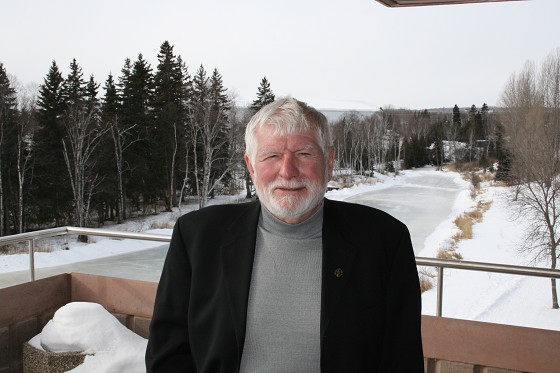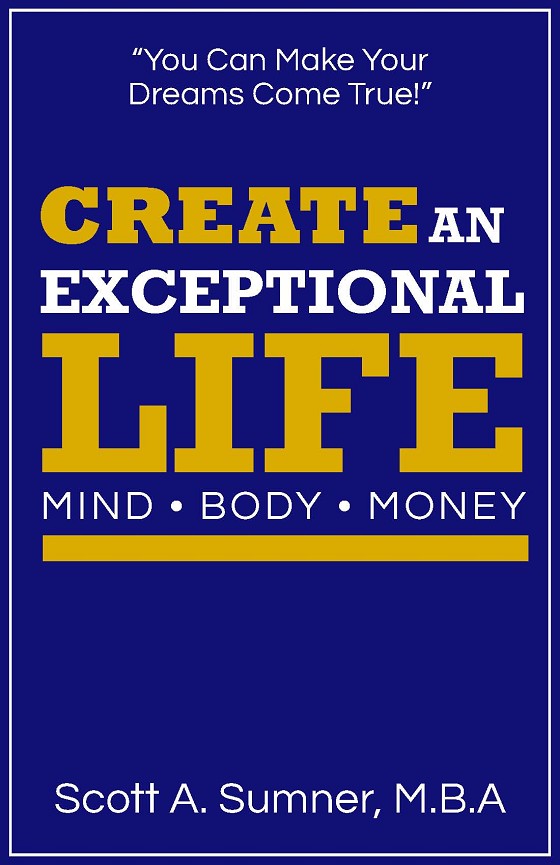Lakehead University President Fred Gilbert Steps Down
by Scott A. Sumner
Thunder Bay Business
The President of Lakehead University is one of the most prestigious jobs in Thunder Bay and in Northwestern Ontario. Fred Gilbert has been the familiar face at the helm, since 1998 and has made a tremendous impact on both the growth of Lakehead University and our entire
Northern region. This summer, Fred will leave his post after s 42 years in the world of academia. It was my pleasure to sit down and have lunch in the LU cafeteria with Fred Gilbert and talk about his career, his accomplishments and his future plans.
Where did you grow up?
I was born in the East York area of Toronto 68 years ago. At that time, Toronto was a city of only 500,000 people, had a curfew, and everything was closed on Sunday. There was no Highway 401 or even the Don Valley Parkway.
What is your educational background?
"I spent three years in Honours Science at the University of Toronto and never quite made it out of second year there. In grade school I loved the outdoors and wildlife. Even back then, the University of Toronto was large. I had skipped two grades in school and I started at U of T at the age of 18. I played every sport, was on the chess team and played bridge. I scraped by in
first year, but in second year I didn’t attend classes and do assignments and failed. In those days, you had to pass every course to advance. Early in redoing the second year, a Botany Prof called me and indicated to me that I had not been handing in projects. It was the first time any prof had taken an interest in me and was pivotal for my future success. Still, I didn’t pass second year as Physics and Calculus caught up with me. I failed second year again!
"In those days, if you failed two years you were barred from all universities for a
period of time. I took a year off to take stock of myself and accepted a position with Lever Brothers. That is when I decided there were other directions for me than to continue working in industry. However, only a few universities would accept me. I sent an application to Acadia
University in Wolf Ville, NS. They replied that they would take a chance with Gilbert. I had had three years of attending the University of Toronto with nothing to show for it, but thankfully, Acadia gave me credit for their first year. At Acadia I applied myself as never before
and achieved A’s. I then even received credit for some other courses I had passed in second year at U of T. I met my degree requirements and was accepted to U of T for graduate school.
Instead, I was one of the first 2 PhD candidates to graduate from the University of Guelph. When I received my PhD, I did so before any of my fellow students that I had started with at University of Toronto."
Where did you begin your academic career?
"My first position was at the University of Maine. I wasn't really thinking I would go there, but instead I would travel to the NW Territories. The job in Maine was so interesting working with wildlife that I remained there. After Maine, I was recruited to the University of Guelph and spent 9 years there before moving to Washington State, the University of British Columbia and then finally on to Colorado State as Provost in the Academic office, an administrative position."
" I thought that I didn’t want to be President of a University but a head hunter persuaded me to take a look and I came in the summer of 1998 to Lakehead University. Given my own background, I have a lot of time for late bloomers and have been definitely prepared to listen to
students that have extenuating circumstances. I like to give chances to deserving individuals since I received one myself at Acadia largely due to the then Dean of Science."
What have been your accomplishments at Lakehead University?
"LU had potential. However, it was dropping in student numbers, quality of programs, and in reputation. It was a matter of turning things around, changing a culture and doing things differently. We started with little things like the word mark or imaging. We started with some early posters branding LU. The building had no identifier on it. We were one of the early universities to take the name as part of our word mark. Next, we did some work on the grounds improving the grounds, pathways and moving electrical transformers. There was nothing
distinctivelyattractive about the grounds, so we tried to make the place appealing. Students attend a university based on the quality of programs, geographic location andappearance. It didn’t cost us a fortune to make some changes then."
" Next, we convinced the Senate that they needed to raise entrance standards from 60 % to 65% and then accordingly 1 % a year up to a minimum of 70%. We find that students coming in with these higher averages do well. Many bright students from Thunder Bay choose us now.
Many of our Presidential Scholars, receiving $6000 per year scholarships are from Thunder Bay."" To be competitive, we needed to show leadership especially on the technology front. We began with VOIP technology and brought in a CRAY super computer and then, smart classrooms in the ATAC building. We accomplished many things people didn’t think that we could. The ATAC building changed the image of Lakehead University."
How has the medical school at Lakehead University been a major
achievement?
"I along with others worked on the medical school. First the Ontario government felt Sudbury was the best site and we would be a clinical location but we rallied to turn the decision to have a full campus here for the medical school. The hospital was constructed before then but
was part of the positioning for locating a medical school here. The hospital was built on campus land and it is good synergy, having the hospital so close."
Why was a new medical campus developed in Orillia?
"We needed to further serve the Southern Ontario market and Orillia came to us at the time. We are building a new campus there with the first academic building to open this fall. The cafeteria and residence will start next. It is a $65 million investment.
What is planned next for Lakehead University?
"We want to continue the growth of graduate programs and offer greater specialization in undergraduate courses. The remediation of the Braun building is underway and we are pushing for constructing a new research building. These are our immediate goals.
We are also hoping to build an Aboriginal Center and a Law Faculty in the old PACI
building. We need to focus on what we are doing for undergraduates but also our role is to provide professional training. If we can develop the law school, the only faculties missing will be dentistry and pharmacy."
How do you feel you about leaving Lakehead University at this point in
their history?
The university is in as good a position as any other university in the province. All Ontario universities have trouble. Today, tuition fees are about $5000 and books cost close to $1000. Our tuition fees account for 30% to 35% of actual operating costs. Other funding has to come from government grants.
Have you enjoyed your time at Lakehead University?
"There have been up and downs at Lakehead. I have enjoyed the city and have enjoyed being part of Lakehead University as well. The people we have attracted here including the faculty, staff and students have made it a special place. The student body is very different, a little
more conservative, definitely friendly and more a part of the community. Seventeen percent of our students are from Thunder Bay and just under half from Northwestern Ontario. We started the Thunderwolves hockey team because Thunder Bay is a hockey community and what better way to connect with the community. We received support from Jim Johnson and Marv Detweiller who had the energy and vision and helped raise the funds to start the team. I would like to see a new multiplex facility for the city and am glad the city management is starting to examine that process.
What is next for Fred Gilbert?
"I want to initially decompress and then see what is available to pursue. I definitely want to keep working and use my abilities. Some presidents retire and dabble as consultants or teach a course. The last time I taught a course was 17 years ago. I am a firm believer administration need 100 % of your attention. You really need to focus your energy."
What do you see as the future of Thunder Bay?
"The future is bright in Thunder Bay. It is finally turning the corner in my mind. When the forest industry sector reinvents itself you will have the resources including mining coming back and we are in the early stages of the technology field. Thunder Bay will be the place people will want to come in ten years. You will have to hold them back with sticks. The package includes the quality of life, the environment, the nature of the economy and a focus on lifestyle. This is a special place."









